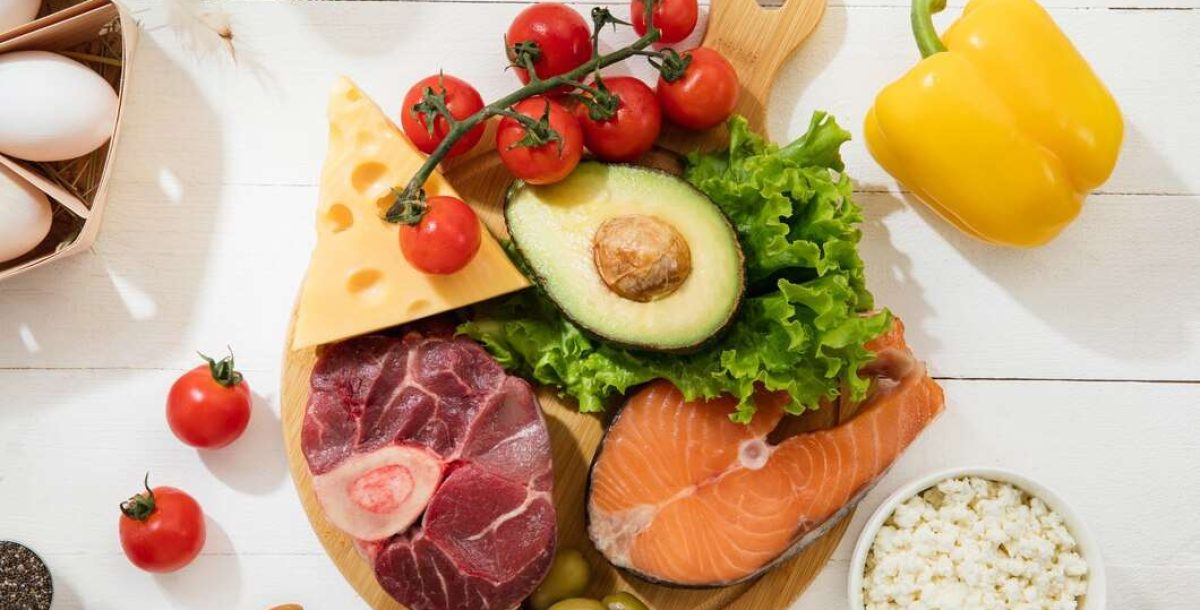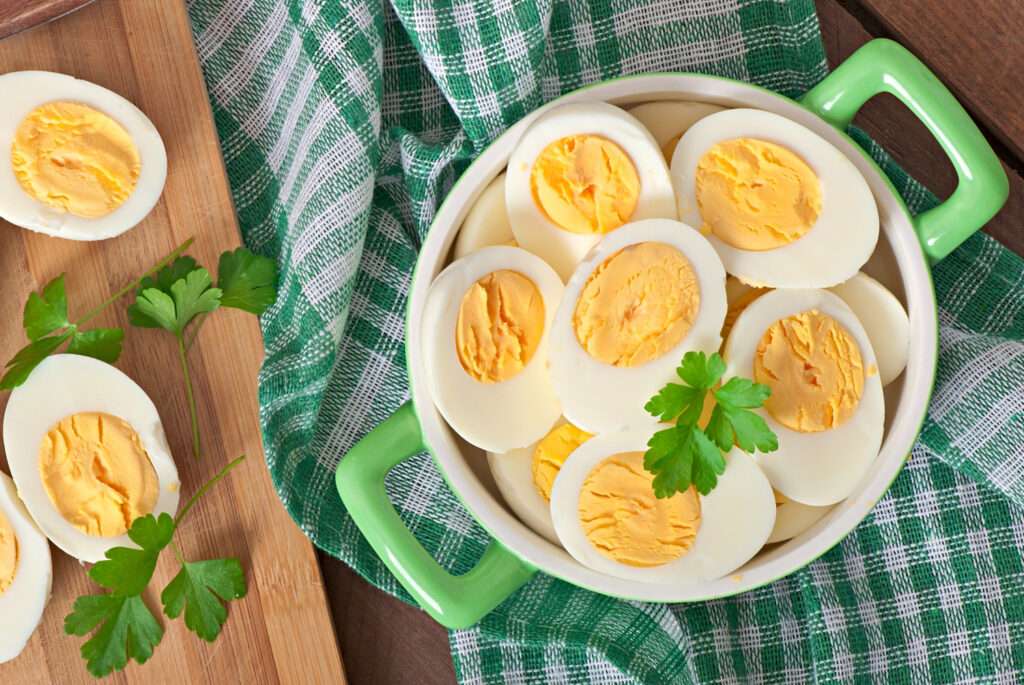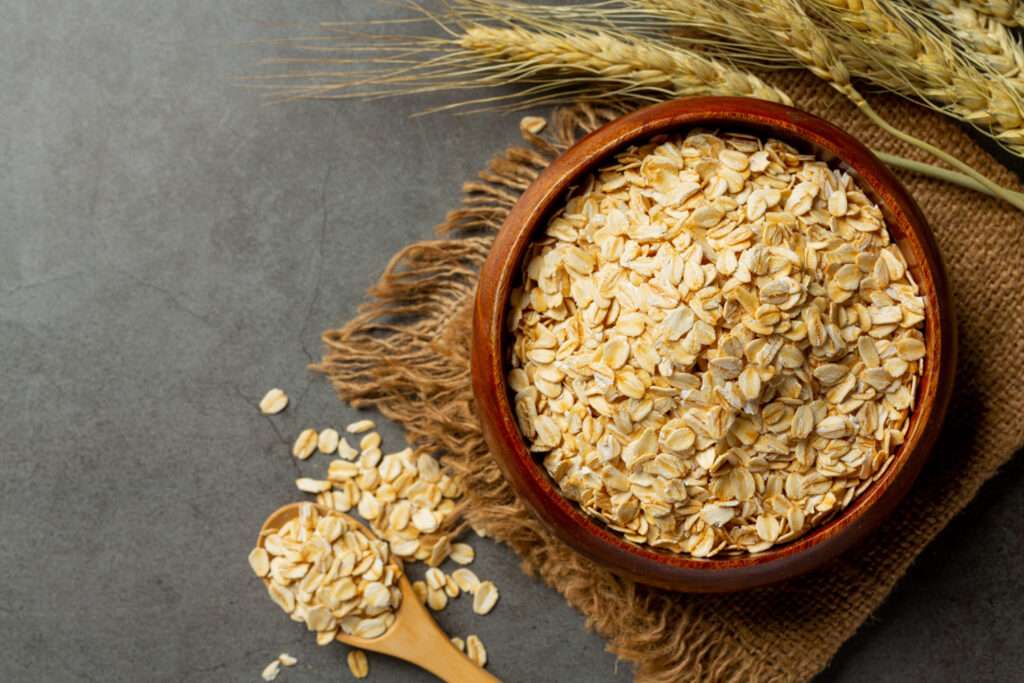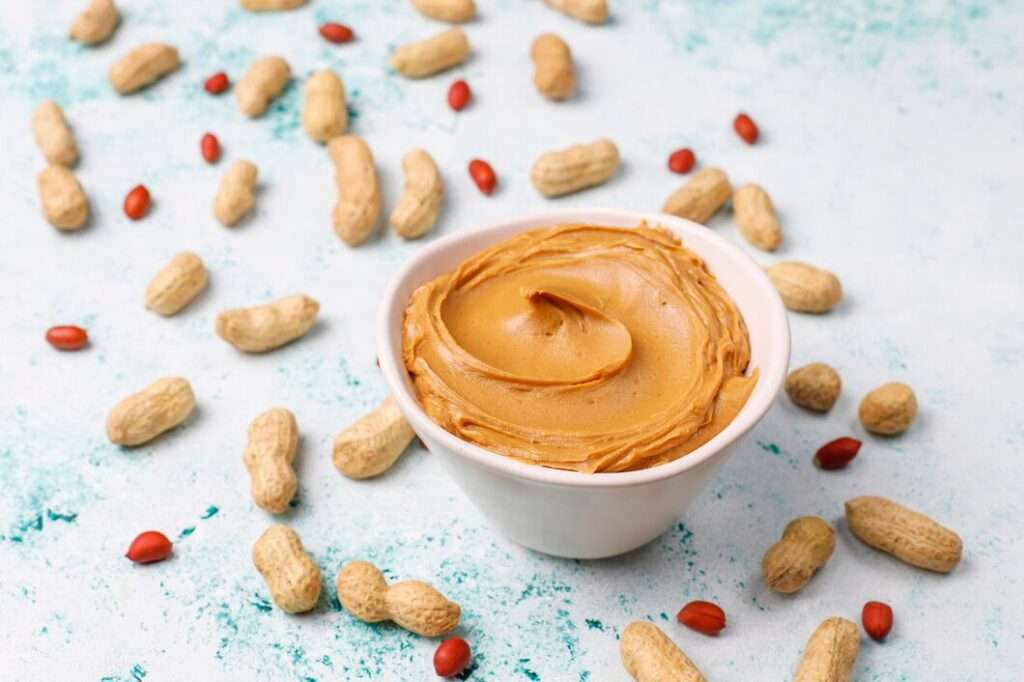Table of Contents
In 2024, getting big and strong means knowing the best high calorie foods for bulking. It’s all about feeding your muscles right!
When you’re aiming to get bigger muscles, what you eat matters a lot. Proteins from foods like chicken and fish help repair and grow muscles. Carbs found in potatoes and grains give you the energy you need for tough workouts. Healthy fats from avocados and nuts keep everything running smoothly.
In the bulking world, “high calorie” simply means eating more energy than your body uses up. It’s like giving your body a boost to grow those muscles. So, focusing on foods with lots of calories helps you bulk up in a smart way, making sure you’re getting the most out of your meals to reach your muscle-building goals.

Macronutrient Needs for Bulking
1. Protein
Protein plays a crucial role in muscle synthesis, serving as the building blocks for muscle tissue repair and growth. During bulking, ensuring an adequate intake of protein is essential for maximizing muscle gains. The recommended protein intake for individuals engaged in resistance training and muscle-building activities is around 1.6 to 2.2 grams per kilogram of body weight per day. Good sources of protein include lean meats like chicken, turkey, and beef, fish, eggs, dairy products, legumes, and plant-based protein sources like tofu and tempeh.
2. Carbohydrates:
Carbohydrates are the body’s primary source of energy, especially during high-intensity workouts. They provide the fuel needed to power through training sessions and support optimal performance. Additionally, carbohydrates play a crucial role in replenishing glycogen stores in muscles, which can become depleted during exercise. To fuel workouts effectively during bulking, focus on consuming complex carbohydrates such as whole grains, fruits, vegetables, and legumes. These provide sustained energy release and support glycogen restoration, ensuring you have the stamina to push through intense training sessions.
3. Healthy Fats:
Healthy fats are essential for overall health and play a vital role in nutrient absorption, hormone production, and cellular function. Including sources of healthy fats in your diet is important during bulking to support muscle growth and overall well-being. Foods rich in healthy fats include avocados, nuts, seeds, olive oil, fatty fish like salmon and trout, and flaxseeds. Incorporating these sources of healthy fats into your meals not only provides essential nutrients but also helps maintain a balanced diet conducive to muscle-building efforts.
Top High Calorie Bulking Foods
A. Protein-Rich Options:

Lean Meats (Chicken, Beef, Fish):
- Lean meats like chicken breast, sirloin steak, and white fish are rich in high-quality protein, which is essential for muscle repair and growth.
- They also provide important nutrients like iron and zinc, supporting overall health and muscle function.
Eggs:
- Eggs are a versatile and nutrient-dense protein source, containing all nine essential amino acids necessary for muscle building.
- They are also rich in vitamins and minerals, including vitamin D and choline, which play roles in muscle function and overall health.
Dairy Products (Greek Yogurt, Milk):
- Greek yogurt is a creamy and protein-packed dairy option, providing a substantial amount of protein per serving. It also contains probiotics, which support gut health.
- Milk, whether dairy or plant-based, is a convenient source of protein and other nutrients like calcium and vitamin D, essential for bone health and muscle function.
Legumes (Beans, Lentils):
- Beans and lentils are plant-based protein sources that are also high in fiber and complex carbohydrates.
- They provide a steady release of energy and support muscle repair and growth. Additionally, they are rich in micronutrients like iron, folate, and magnesium, which are important for overall health and athletic performance.
Plant-Based Alternatives (Tofu, Tempeh):
- Tofu and tempeh are soy-based protein sources commonly used in vegetarian and vegan diets. They are versatile ingredients that can be used in a variety of dishes and provide all essential amino acids necessary for muscle growth.
- They are also rich in other nutrients like calcium, iron, and manganese, supporting bone health and muscle function in plant-based diets.
Incorporating these protein-rich options into your bulking diet ensures that you meet your daily protein needs while supporting muscle development, recovery, and overall health.
B. Nutrient-Dense Carbohydrates:

Whole Grains (Quinoa, Brown Rice, Oats):
- Whole grains are powerhouse carbohydrates, offering sustained energy for workouts and aiding glycogen restoration.
- Quinoa, brown rice, and oats are rich in fiber, supporting digestive health, and provide essential nutrients like B vitamins, magnesium, and iron, crucial for energy metabolism and overall well-being.
Sweet Potatoes:
- Sweet potatoes are a nutrient-dense carbohydrate source containing complex carbohydrates, fiber, and an abundance of vitamins, especially vitamin A.
- Their slow-digesting nature ensures a gradual release of energy, making them an ideal choice for maintaining energy levels during extended periods, such as intense training sessions.
Fruits (Bananas, Mangoes):
- Fruits, like bananas and mangoes, contribute natural sugars for quick energy.
- Beyond that, they offer a spectrum of vitamins, minerals, and antioxidants, promoting overall health and aiding in post-workout glycogen replenishment. These colorful additions also enhance the taste and variety of your diet.
Starchy Vegetables (Corn, Peas):
- Starchy vegetables, including corn and peas, provide additional carbohydrate sources, supporting the overall caloric needs during bulking.
- Packed with fiber, these vegetables aid digestion and provide a steady release of energy. The variety of nutrients they offer, such as vitamins, minerals, and antioxidants, further contribute to your body’s well-rounded nutritional intake.
Incorporating these nutrient-dense carbohydrates into your bulking diet plan ensures a comprehensive approach to energy supply, promoting sustained stamina, muscle recovery, and overall health throughout your muscle-building journey.
C. Healthy Fat Sources:

Nuts and Nut Butters:
- Nuts and nut butters offer a concentrated source of healthy fats, including monounsaturated and polyunsaturated fats.
- They provide essential omega-3 fatty acids, supporting heart health and inflammation reduction. Nuts are also rich in micronutrients like magnesium, aiding muscle function and energy metabolism. Nut butters, such as almond or peanut butter, are versatile additions to meals, adding creaminess and extra calories.
Avocados:
- Avocados are a nutrient-dense fruit, rich in monounsaturated fats that contribute to cardiovascular health. Beyond healthy fats, avocados provide vitamins E, C, B6, and potassium, supporting overall well-being.
- Their creamy texture makes them a flavorful and calorie-dense addition to salads, sandwiches, or as a stand-alone snack.
Seeds (Chia, Flax):
- Chia and flax seeds are nutritional powerhouses, offering a blend of healthy fats, fiber, and protein. These seeds are abundant in omega-3 fatty acids, promoting heart health and reducing inflammation.
- Incorporating seeds into smoothies, yogurt, or as toppings for meals enhances both nutrient content and caloric density.
Olive Oil:
- Olive oil, rich in monounsaturated fats and antioxidants, supports cardiovascular health. Drizzling olive oil on salads, using it in cooking, or as a dip for bread provides an easy way to increase healthy fat intake.
- The antioxidants in olive oil also contribute to overall health and well-being.
Integrating these healthy fat sources into your bulking diet not only enhances the nutritional profile but also ensures a diverse and flavorful approach to meeting increased calorie needs during the muscle-building phase.
Meal Ideas for Bulking
Sample Meal Plans and Snack Ideas:
Breakfast:
- Scrambled eggs with spinach, tomatoes, and feta cheese
- Whole grain toast with mashed avocado and a sprinkle of chia seeds
- Greek yogurt parfait with granola, mixed berries, and a drizzle of honey
Lunch:
- Grilled chicken salad with mixed greens, quinoa, cherry tomatoes, cucumber, and a balsamic vinaigrette dressing
- Whole grain wrap with lean turkey, hummus, shredded carrots, and greens
- Lentil soup made with assorted vegetables and a side of whole grain bread
Dinner:
- Baked salmon seasoned with herbs, served with roasted sweet potatoes, and steamed broccoli
- Stir-fried tofu with a colorful mix of bell peppers, broccoli, snap peas, and brown rice
- Lean beef stir-fry with sliced mushrooms, onions, and brown rice noodles in a soy-ginger sauce
Snack Ideas:
- Greek yogurt parfait with granola, sliced almonds, and fresh berries
- Apple slices with almond butter and a sprinkle of cinnamon
- Trail mix with a variety of nuts, seeds, dark chocolate chips, and dried fruits
- Cottage cheese with pineapple chunks and a drizzle of honey
- Hummus with carrot, cucumber, and bell pepper sticks for dipping
Importance of Individual Calorie Needs and Dietary Adjustments:
Understanding your unique calorie needs is essential for achieving your muscle-building goals. Factors such as age, gender, activity level, and metabolism influence calorie requirements.
Regularly assess how your body responds to different foods, and be open to adjusting your meals based on energy levels, muscle recovery, and overall well-being.
Consulting with a nutritionist or dietitian can provide personalized guidance, ensuring your dietary choices align with your individual needs and preferences. Adjustments may be necessary as you progress on your fitness journey, emphasizing the importance of a flexible and tailored approach to nutrition.
Additional Factors for Bulking
Strength Training Program Specifics:
- Designing a structured strength training program is crucial for effective bulking. Focus on compound exercises like squats, deadlifts, lunges, bench presses, and rows to target multiple muscle groups simultaneously and stimulate growth.
- Progressive overload, gradually increasing the weight or intensity of your workouts over time, is key to continuous muscle gains. Incorporate a variety of rep ranges and training modalities to challenge your muscles and prevent plateaus.
Adequate Sleep and Recovery:
- Quality sleep is essential for muscle recovery and growth during bulking. Aim for 7-9 hours of uninterrupted sleep per night to optimize hormone production, including growth hormone and testosterone, which are critical for muscle repair and synthesis.
- Incorporate rest days into your training schedule to allow your muscles time to recover and rebuild.
- Utilize relaxation techniques like stretching, foam rolling, and massage to enhance recovery and minimize the risk of injury.
Hydration and Water Intake:
- Proper hydration is often overlooked but essential for optimal performance and muscle function during bulking.
- Aim to drink at least 8-10 glasses of water per day, or more if you’re engaging in intense physical activity or in hot environments.
- Dehydration can impair muscle recovery, decrease strength and endurance, and hinder overall performance. Monitor your urine color and aim for pale yellow to ensure adequate hydration.
- Consider electrolyte-rich beverages or sports drinks to replenish electrolytes lost through sweat during intense workouts.
Incorporating these additional factors into your bulking regimen alongside proper nutrition and training will maximize muscle growth, performance, and overall health.
Conclusion
In conclusion, the significance of strategic nutrition and training cannot be overstated in the context of bulking. High-calorie foods, with a focus on protein, carbohydrates, and healthy fats, form the bedrock, providing the essential energy and nutrients required for effective muscle growth during bulking.
Combining nutrition with a well-structured strength training program maximizes muscle stimulation and growth potential. However, adequate rest and recovery are equally essential for effective bulking and injury prevention.
Additionally, maintaining proper hydration levels is paramount for performance and overall well-being during the bulking process.
FAQs:
1. Which foods are best for Bulking?
- Lean Meats (Chicken, Turkey, Fish)
- Eggs
- Dairy Products (Greek Yogurt, Milk)
- Nuts and Nut Butters
- Whole Grains (Quinoa, Brown Rice, Oats)
- Sweet Potatoes
- Fruits (Bananas, Mangoes)
- Avocados
2. What foods are high in calories to gain weight?
- Nut and Seed Butters
- Cooking Oils (Olive Oil, Coconut Oil)
- Dried Fruits
- Full-Fat Dairy Products
- Fatty Fish (Salmon, Mackerel)
- Red Meat (Beef, Pork)
- Dark Chocolate
- Whole Fat Cheeses
3. How to bulk fast?
- Consume a calorie surplus by eating more than your body burns.
- Prioritize high-calorie, nutrient-dense foods.
- Increase protein intake for muscle synthesis.
- Engage in a progressive strength training program.
- Ensure adequate sleep and recovery.
4. What is dirty bulking?
Dirty bulking involves consuming a large number of calories, often from unhealthy or processed foods, to gain weight rapidly. While it can lead to quick weight gain, it may result in excessive fat accumulation and potential health risks. A cleaner approach to bulking focuses on nutrient-dense, whole foods to support muscle growth with minimal fat gain.
